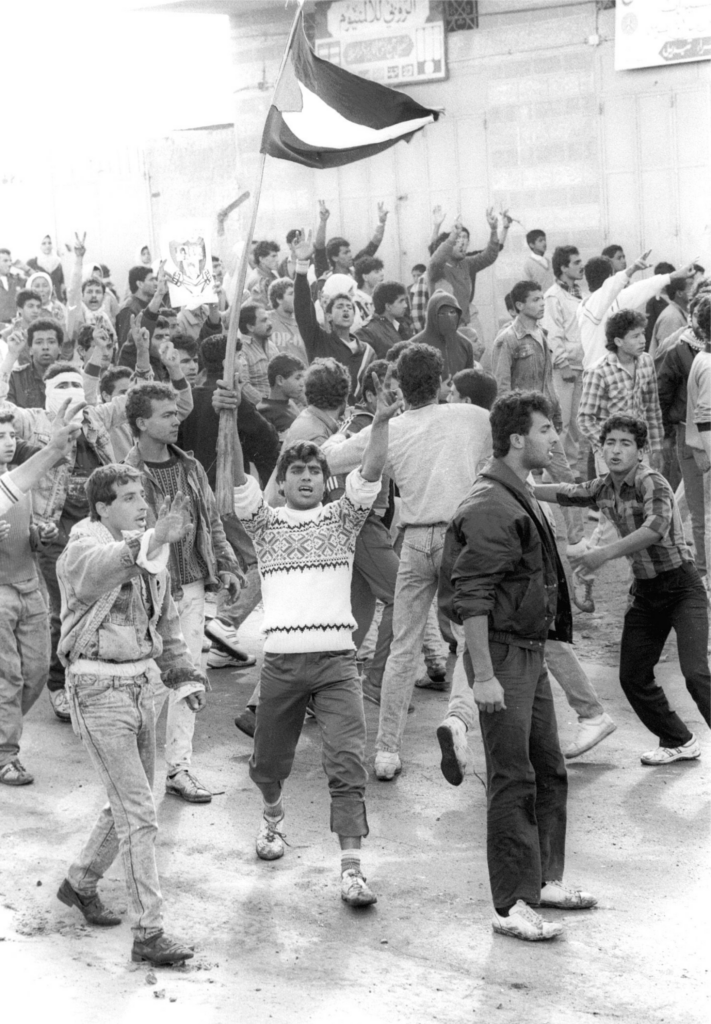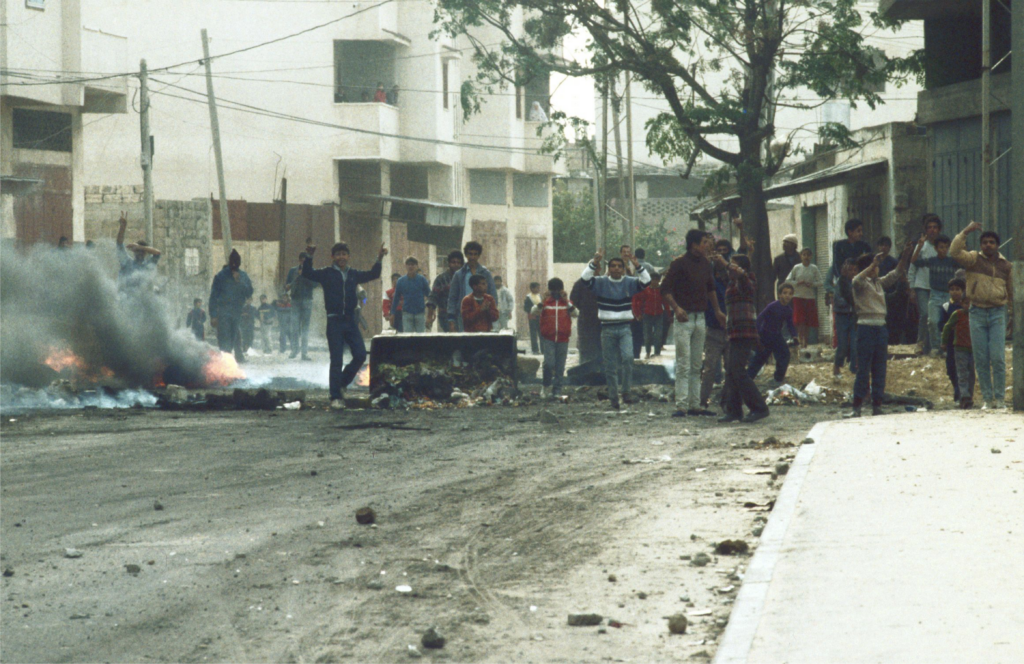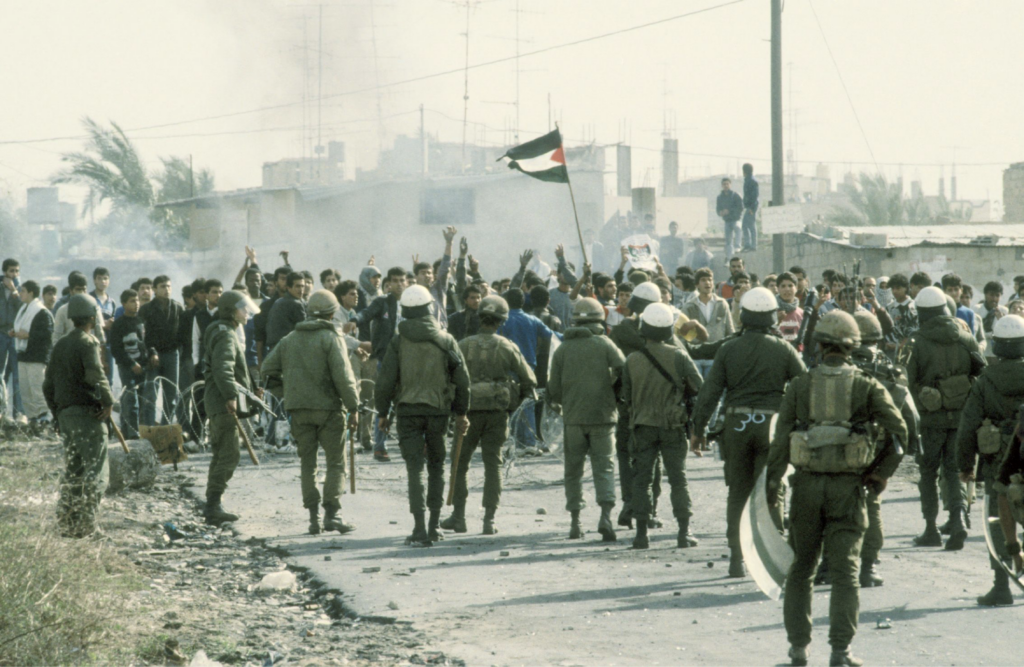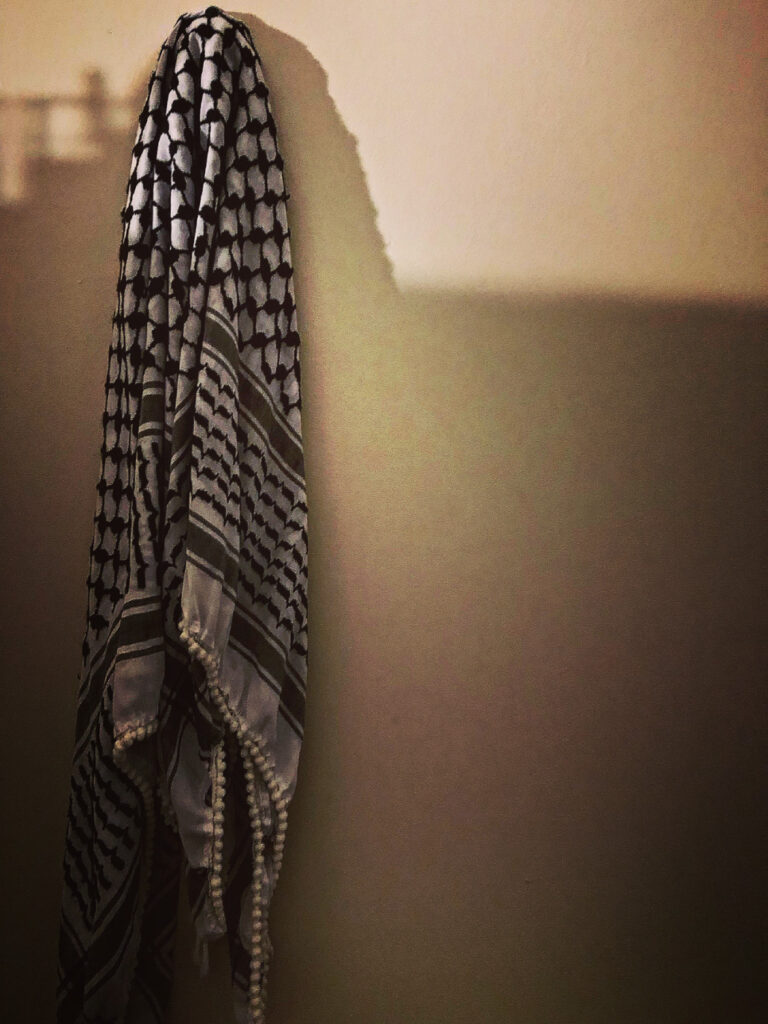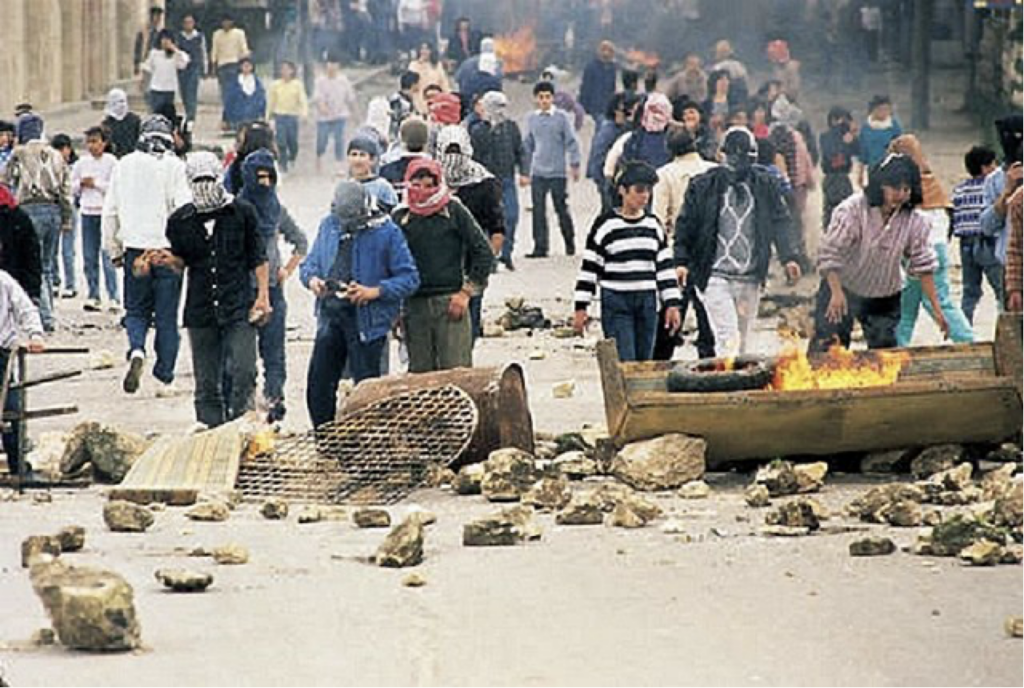“‘Children of the Stones,’ that’s what they called us.” I am sitting with one of the children of the first Palestinian Intifada. Now he is a man with some grey hair on the sides of his head.
Back in 1987, the first Palestinian uprising began against the Israeli occupation of their land. At 13, this boy did not understand what a homeland was. He didn’t know what an uprising was, either.
Men were getting arrested. Women were getting beaten. Children were getting murdered. He saw it all. In his head, this was their normal life.
It was when people started gathering after church on Sundays and went out to protest that he started going. With chants for freedom and liberation, the people marched and protested. “At first, I only went because all the kids my age did.”
As they marched for freedom, the Israeli forces suppressed them with rubber bullets and tear gas. With nothing to confront an army, the children threw stones. “That’s all we had against their tear gas and tanks.” His tone is proud. “It was us, kids, from the ages of 13 to 25, with stones that faced fully armed soldiers.”
“If you ask me about honor, I will tell you it is the first Intifada. The stones’ uprising.”
It was he and children his age who went out every day to confront the occupation forces. They did not fear the bullets that were raining on them. It was under those bullets, as the smell of tear gas suffocated them, that they learned the meaning of homeland. “That’s when we became the children of the Intifada.”
“It was us who didn’t know anything about this homeland that were at the fronts to protect it.”
I see them. Those children who were at the prime of their life were no longer chasing dreams. They were chasing freedom. On their young backs, they carried a homeland; with their hands, they paved the way for it.
With people committees and youth groups, they guarded their villages throughout the night. “No one slept,” he says. “None of us could.” It was this fear for their people and the need to protect them that kept them from closing their eyes.
Those same children gave back to their people by taking care of chickens and planting vegetables in their backyards. They distributed them throughout the towns.
The children led student unions. They had night classes with the older guys. They learned and read about their history and culture.
“The Israeli soldiers broke into the house we were in.” The only escape was jumping 12 meters down from the balcony. “It was scary, I’m not going to lie, but we managed to escape.”
It was one of the days that they were gathering at his house that he remembers the most. “It was one of those times that we weren’t doing anything,” he scoffs. “It wasn’t even a meeting; we were just chilling.” They found the soldiers in the middle of their house. They had broken in. They ordered them to walk outside and make a line against the wall. With the children’s faces to the wall, the soldiers threatened them to raise their hands above their heads.
“I thought it was the end. We were all going to get arrested.”
That was when his mother came outside, crying and yelling at the soldiers to leave the children alone. “They pushed her,” he swallows. It is almost a whisper. His mother fell to the ground. They yelled at the soldiers to let her go but none of them dared to turn their heads. “They would have shot anyone who did,” he shakes his head.
“What could I have done? I was young. I was about 14 years old. What can a fourteen-year-old do when a gun is pointed to their head?”
Death furiously chased the children of the stones. “My cousin, my friend, he was full of passion, full of life.”
At 19 years old, his cousin wasn’t like any other kid.
His cousin loved life yet embraced death. His cousin was the one who confronted the Israeli soldiers and the one who never failed to go to a protest. It was his cousin who “broke a bulldozer by himself.”
He was with his cousin on the day he died. He told him to avoid the protests that day, that the soldiers were shooting to kill, and that the other kids did not want to go anyway.
But he should have known that his cousin would end up going. “It was who he was,” he smiles. It is a sad smile. His eyes are distanced, sailing with him to that day.
“It was a dumdum bullet,” he says. “They shoot you with it, then it explodes inside of you, and you’re gone.” He says it casually, as though it is a story he has told a million times and as though it does not affect him after all this time.
He had last seen his cousin alive when he was running down the hill. He did not know that he had a bullet inside of him, a bullet that tore all his organs apart. He found his cousin lying under a tree.
The kid full of life was lifeless.
“I wished I had stopped him from going. I wished I had held on to him and made him stay. I thought maybe I should’ve gone with him. I don’t know what I thought. But it was too painful.”
He is silent then and I let him. I let silence roam and haunt the room as we quietly mourn a life that had not been lived.
“He was there a moment ago and he was gone the next.” The words echo in the room as a story of another forsaken life unfolds.
Atallah was not just the mayor of the village. He was a mentor. He was a teacher. He was a father. He was a friend. While the children of the Intifada swam in rage, he brought them to the shore. He humbled them. He filled their minds with history and knowledge. As for their hearts, he filled them with love and resilience.
“When he talked, you just listened. He had everyone’s attention.”
As they gathered in his house, the calmness of their usual night was interrupted when Israeli forces raided the village.
They had stopped a young boy. They were searching him. They were harassing and provoking him.
When the mayor saw them, he confronted the soldiers and told them to let the boy go.
“We were all watching. The soldiers came at him and cursed him, they kept pushing him. He was a 70-year-old man, so his body couldn’t handle it.”
Mayor Atallah had a stroke. He passed away immediately.
“I don’t remember what I felt at the time. I remember just freezing in my place.”
How do children react when they watch the mentor who taught them about life suddenly die?
The protests intensified. Everyone went out in honor of the mayor’s beloved soul.
“It was anger that you could see in people’s eyes. You couldn’t see their faces because we wrapped a kufiyah around our faces during confrontations so that soldiers wouldn’t recognize us. All you could see was the eyes.”
“My dad would be furious when I went out to protests. If he caught me outside, he would yell at me in front of all the kids.” He is laughing now. I see in his eyes a young boy, hiding from his father’s scolds.
“Oh God, he used to get so mad. He would embarrass me in front of everyone and tell me to go home.”
But his father loved the children of the Intifada. Everyone did. They would hand out sandwiches and water to the protestors during confrontations. “When the army was raiding the town, they would tell us where they were so we wouldn’t go there. They let us stay at their houses when things would be crazy outside.” They protected those children like they were their own.
The most honorable uprising in the world. That is what he calls it. “It united people. It brought us together. We loved and cared for one another.”
The women of the Intifada led the protests and walked at the very fronts. The men and children followed them.
“Our pain made us one.” It changed them. They were no longer children. They were fighters and dreamers.
“I know that it might sound strange, but those were some of the most beautiful days of my life.”
One would wonder how, despite all that pain, those days were still beautiful to him. The answer is in their eyes, their raised fists, and their sleepless nights. It was the people’s Intifada. “The people who went out with their cause in one hand and their stones in another. They were willing to fight for it, even with an entire army in front of them.”
